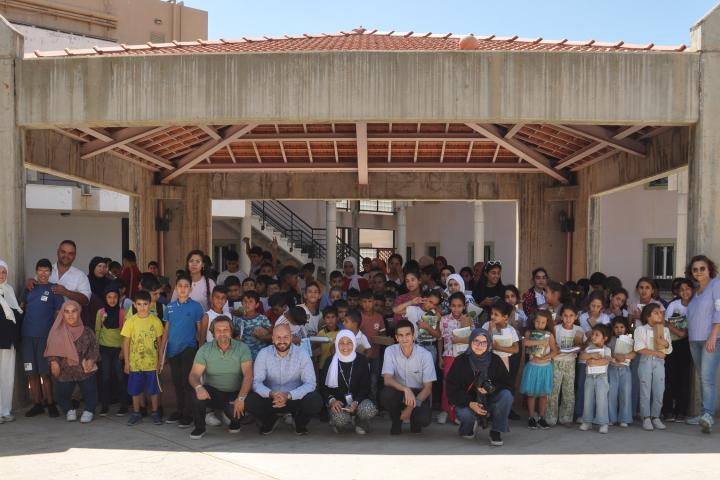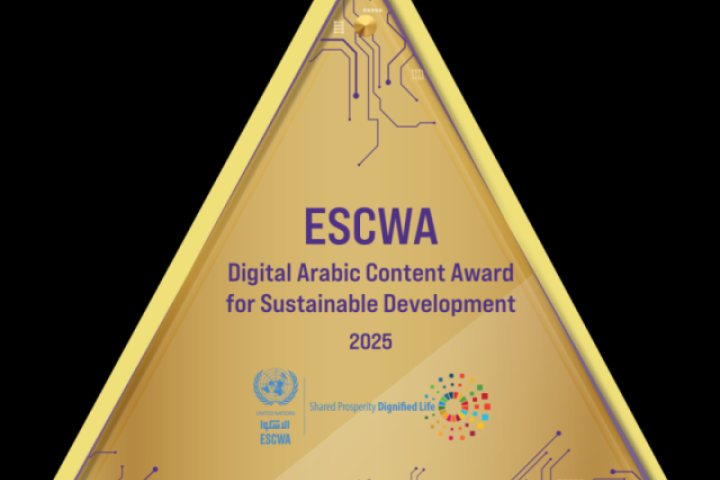“Our meeting with representatives and ambassadors from Arab States was very significant in terms of presenting ESCWA's programmes for 2018 in addition to briefing them on our accomplishments during 2017,” said Mohamed Ali Alhakim, the Executive Secretary of the UN Economic and Social Commission for Western Asia (ESCWA).
“We will consistently be communicating with them to share the status of ESCWA projects, publications and specialized meetings, including all matters related to social and economic development and the 2030 Agenda,” he added.
The meeting was held in the context of Advisory Committee sessions organized every four months and composed of heads of diplomatic missions based in the host country, Lebanon, as well as a representative from the Lebanese Foreign Ministry.
This first session of 2018 featured a briefing by Executive Secretary Alhakim who began by highlighting UN Secretary-General Antonio Guterres’ reform proposals for the UN development system. These aim to enhance the UN’s contribution to sustainable development, ensure more effective capacities to tackle conflict and sustain peace, and improve the UN’s internal management and ability to deliver.
Mr. Alhakim underlined activities conducted by ESCWA throughout the region, such as capacity building workshops that seek to build local knowledge and transfer expertise from one country to another. His recent visits to GCC countries, Iraq, Jordan and Egypt were described as opportunities to hold bilateral meetings and enhance mutual cooperation.
Publications recently released by ESCWA were in the spotlight, such as the Arab Multidimensional Poverty Report, which provides practical proposals to support Arab efforts in the eradication of poverty, and the RICCAR Arab Climate Change Assessment Report, which warns about the impact climate change is expected to have on freshwater resources until the end of the century.
On the issue of gender equality, which is a crosscutting priority across all of ESCWA’s work, Mr. Alhakim stressed the urgency of integrating more women in the labour market and insisted on the critical need to generate employment opportunities and vocational training for young women and men alike. He also drew attention to a project that estimates the costs of intimate partner violence—the most common form of violence against women in the Arab world—which will continue this year following pilots in Egypt and Palestine.
The Commission’s activities in support of technology and innovation will also take center stage in 2018, with “Technology for Development” as the theme of the upcoming Ministerial Session. Mr. Alhakim stressed that innovation is crucial for public sector reform and to improve government services, in addition to empowering youth and stimulating entrepreneurship.
ESCWA is also set to continue its unique support to member States in improving statistical standards in the collection, analysis and dissemination of data, especially in the context of the 17 Sustainable Development Goals (SDGs) and their many indicators. Given that reliable data is key to reaching evidence-based policy decisions and for monitoring progress, Arab countries are being encouraged to exchange their experiences, not just in terms of technical issues but also in setting up the institutional landscape necessary for achieving results.
Ambassadors and government representatives then took the floor to engage with ESCWA’s leadership, including Deputy Executive Secretary Khawla Mattar. Asked about the role of the Commission in regards to preventative diplomacy in the aftermath of conflict, Ms. Mattar highlighted ESCWA’s works in mitigating the impact of crises, transition and occupation in the Arab region by building the capacity of member States to respond to conflict and related risks.
In addition, several projects are supporting Arab countries in conflict, such as the National Agenda for the Future of Syria Programme (NAFS). Established in 2012, NAFS is a platform for Syrians to develop policy options that can pave the way for peace, reconciliation, and a sustainable recovery in post-conflict Syria. Similar initiatives are underway for Libya and Yemen.
“These projects are being developed in consultation with experts, civil society bodies and all of the concerned groups in each country,” Ms. Mattar stressed, noting the importance of establishing the root causes of conflict and exploring the consequences of war on the development of human capacities.
*****
For more information:
Nabil Abu-Dargham, Head, ESCWA Communication and Information Unit
+961-70-99 31 44; email: dargham@un.org
Ms Rania Harb +961-70-008879; email: harb1@un.org
Ms Myrna Mahfouz: +961-70-872-372; email: mahfouz@un.org
Mr Haidar Fahs: +961-70-079-021; email: haydar.fahs@un.org



